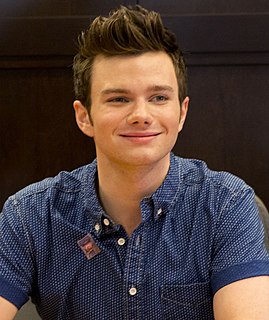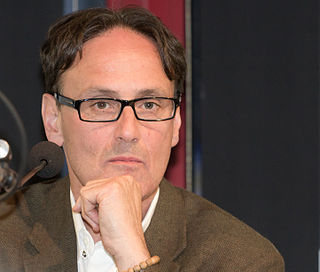A Quote by Chris Colfer
To Grandma, for being my first editor and giving me the best writing advice I’ve ever received: “Christopher, I think you should wait until you’re done with elementary school before worrying about being a failed writer.
Related Quotes
My last point about getting started as a writer: do something first, good or bad, successful or not, and write it up before approaching an editor. The best introduction to an editor is your own written work, published or not. I traveled across Siberia on my own money before ever approaching an editor; I wrote my first book, Siberian Dawn, without knowing a single editor, with no idea of how to get it published. I had to risk my life on the Congo before selling my first magazine story. If the rebel spirit dwells within you, you won't wait for an invitation, you'll invade and take no hostages.
The best piece of advice I ever received about being a writer came from my brother Lee. I was just starting out and he told me that if I wanted to have a long career, I had to be versatile, that I shouldn't just think of myself in one way, because there would come a time when maybe that one thing wasn't working out for me - and I'd still want to earn a living as a writer.
I think the first thing - if you want to be a writer - the first thing you need to do is write. Which sounds like an obvious piece of advice. But so many people have this feeling they want to be a writer and they love to read but they don't actually write very much. The main part of being a writer, though, is being profoundly alone for hours on end, uninterrupted by email or friends or children or romantic partners and really sinking into the work and writing. That's how I write. That's how writing gets done.
At different points, I applied to graduate school. I got into medical school. I thought about being a writer. I thought about being an investment banker. I just didn't know what I wanted to do with myself. I think the thing that best suits me about being a C.E.O. is that you get to exercise many different talents and wear many different hats.
The best advice on writing was given to me by my first editor, Michael Korda, of Simon and Schuster, while writing my first book. 'Finish your first draft and then we'll talk,' he said. It took me a long time to realize how good the advice was. Even if you write it wrong, write and finish your first draft. Only then, when you have a flawed whole, do you know what you have to fix.
Read Becoming a Writer by Dorothea Brande. Then do what it says, including the tasks you think are impossible. You will particularly hate the advice to write first thing in the morning, but if you can manage it, it might well be the best thing you ever do for yourself. This book is about becoming a writer from the inside out. Many later advice manuals derive from it. You don't really need any others, though if you want to boost your confidence, "how to" books seldom do any harm. You can kick-start a whole book with some little writing exercise.




































